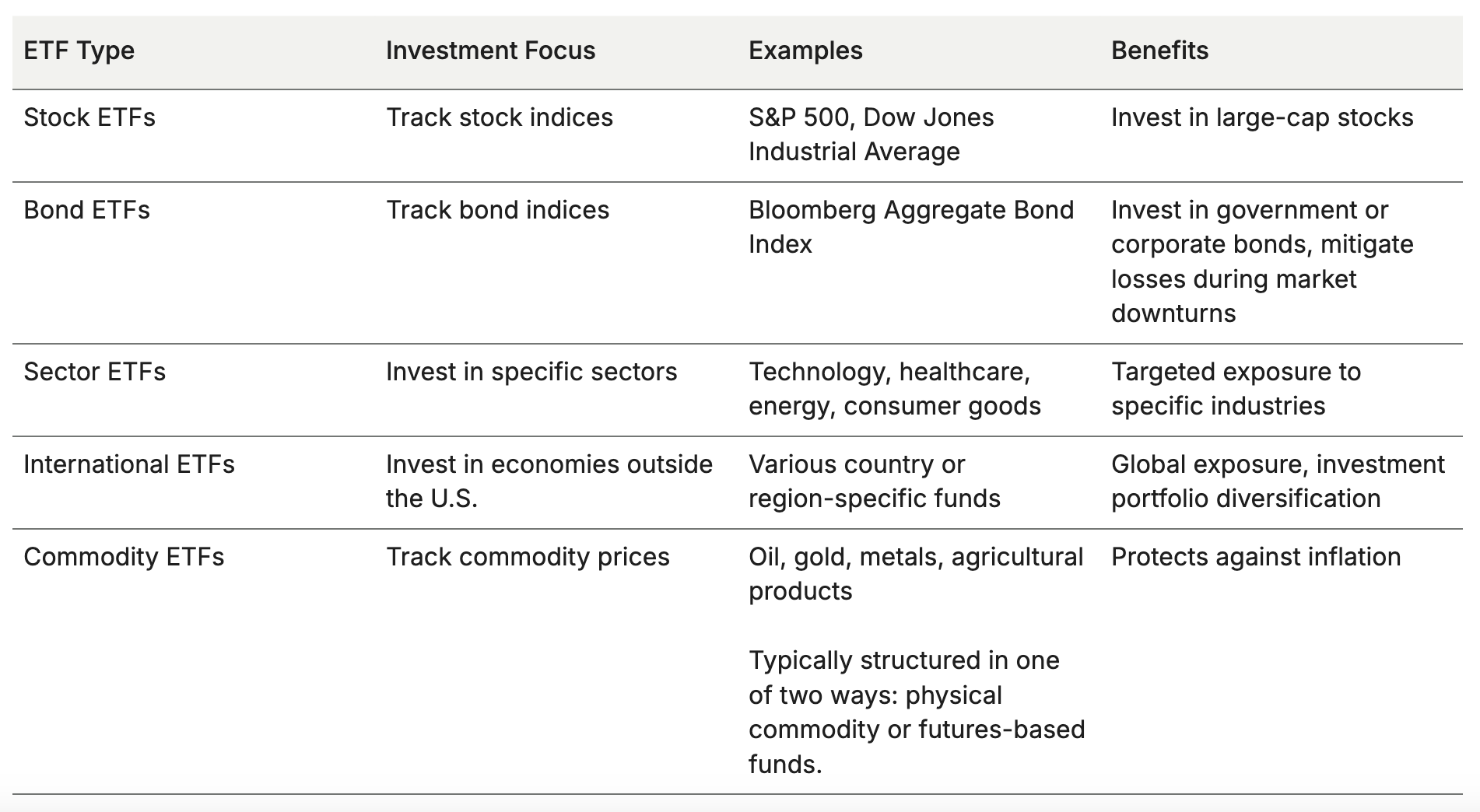A guide to understanding Exchange-Traded Funds (ETFs) for small business owners
Small business owners must be proactive in saving for retirement, but within their retirement portfolios, there are many investment vehicles to choose from. My firm, Lasting Wealth Principles, primarily uses Exchange-Traded Funds (ETFs) when constructing investment portfolios (e.g., retirement accounts) for clients. With its unique structure, ETFs can provide many benefits to investors. ETFs hold several investment assets (e.g., stocks, bonds), which provide diversification to investors without having to purchase individual investment assets. Like it indicates in its name, ETFs are exchange-traded, which means that an investor can buy or sell them any time when the stock market is open. I provide details about the benefits of ETFs, risks of ETFs, types of ETFs, and how ETFs fit into the investment philosophy at my firm.
Benefits of ETFs
Cost-effective
In comparison to mutual funds, ETFs typically have lower expense ratios, which make them more economical and can provide an investor better net investment returns over the long term. Most ETFs are index funds that have an objective of tracking a specific index (i.e., passively managed funds), which makes them less expensive. Passive investing has a goal of matching the performance of a specific index instead of trying to outperform it, meaning that there are no (or minimal) decisions to make about which investments to choose (i.e., buy for, keep in, or sell from portfolio). This results in less frequent trading and lower research costs, which is why ETF management fees are typically lower.
Exchange-Traded
ETFs are easy to trade as they are listed on public exchanges, such as the New York Stock Exchange and NASDAQ. As noted above, this means that trading can happen throughout market hours, so investors are able to see the prices of ETFs throughout the day in real time. Not only can investors see prices in real time daily, but they also have clarity on their investment portfolio because most ETFs disclose their holdings (i.e., investment assets) daily. Small business owners must be effective decision makers so having this type of clarity with where their money is being invested is highly beneficial.
Tax efficiency
This tax efficiency benefit of ETFs does not apply in accounts like a solo 401k or SEP IRA because they are tax deferred (i.e., taxation occurring at distribution of funds from accounts). However, if a small business owner also invests in a taxable account (i.e., brokerage account), then they are responsible for paying taxes on income from its investments (e.g., dividends and interest) and on the sale of investments for a higher price than what they were originally purchased for (i.e., capital gain). Trading activity is low with most ETFs because their objective is to track a specific index meaning that they will typically have a lower amount of capital gain distributions, which leads to more tax efficiency.
Risks of ETFs
Like other types of investments, ETFs are subject to market risk (i.e., a potential stock market downturn) that can decrease their investment value, which is based on the investment assets in the fund. Additionally, since ETFs have the objective of replicating the performance of a specific index, potential discrepancies can occur, which results in tracking errors (difference between ETF and the specific index that it tracks).
Types of ETFs
There are several types of ETFs with each of them having their own objectives and investment strategies. My list below is not exhaustive, but I note details about some of them that I see often.
Investing philosophy at Lasting Wealth Principles
At my firm, Lasting Wealth Principles, I have a passive investing philosophy and primarily use ETFs to construct investment portfolios for small business owners as I believe that my clients should focus on keeping their investment fees low. With their objective of matching the performance of a specific index, ETFs are cost effective and can provide my clients with better net investment returns as they are saving for retirement. Even further, I focus on making sure my clients understand their personal risk tolerance and have an investment portfolio with the appropriate asset allocation.


